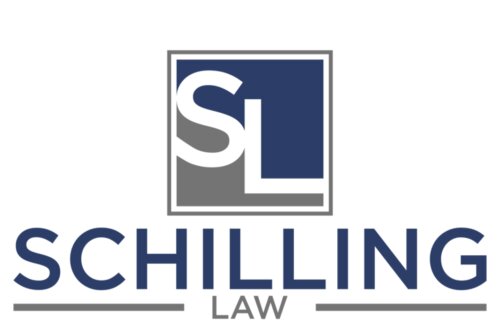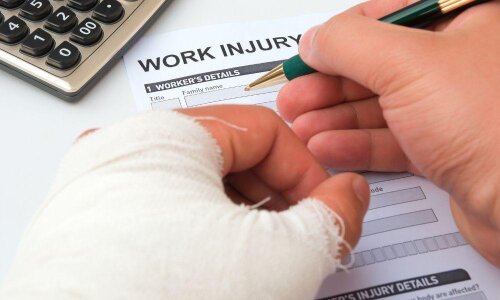Best Personal Injury Lawyers in Kansas
Share your needs with us, get contacted by law firms.
Free. Takes 2 min.
Or refine your search by selecting a city:
List of the best lawyers in Kansas, United States
About Personal Injury Law in Kansas, United States
Personal injury law in Kansas allows individuals who have been hurt or suffered losses due to someone else's negligence or wrongful actions to seek compensation. This area of law covers a wide range of incidents, including car accidents, slip and fall injuries, dog bites, medical malpractice, and more. Personal injury claims are designed to help victims recover damages for medical bills, lost wages, pain and suffering, and other losses caused by the incident. Kansas law has specific rules and timelines for bringing a personal injury claim, so understanding your rights and the legal process is crucial.
Why You May Need a Lawyer
Navigating a personal injury claim can be complicated and stressful, especially while you are recovering from injuries. Many people in Kansas consider hiring a personal injury lawyer for the following reasons:
- Insurance companies often work to minimize the amount they pay out in claims. A lawyer can negotiate on your behalf to ensure you receive fair compensation.
- Severe injuries may involve significant medical treatment and long-term impacts, making it difficult to assess the true value of your claim without legal help.
- Liability may be unclear, or the at-fault party may contest your version of events. An attorney can help gather evidence and build a strong case.
- Kansas law has specific rules, deadlines, and procedures that must be followed. A lawyer will help ensure you do not miss important steps or forfeit your rights.
- Some cases, especially those involving multiple parties or government entities, can be especially complex and benefit from legal experience.
Local Laws Overview
Here are some important aspects of Kansas personal injury law:
- Comparative Fault: Kansas follows a modified comparative fault rule. You can recover damages as long as you are less than 50 percent at fault for the accident, but your compensation will be reduced by your percentage of fault.
- Statute of Limitations: In most personal injury cases, you have two years from the date of your injury to file a lawsuit. If you miss this deadline, you may lose your right to pursue compensation.
- Caps on Damages: For certain types of claims, such as non-economic damages in medical malpractice cases, Kansas law may limit the amount you can recover.
- Liability Insurance: Kansas requires drivers to carry specific minimum amounts of liability insurance, which may affect compensation in car accident cases.
- No-Fault Car Insurance: Kansas is a no-fault state for auto insurance, meaning your own insurance pays for certain losses regardless of fault, though you may still sue for serious injuries.
- Dog Bite Liability: Kansas typically follows a "one bite rule," where a dog owner may be held liable if they knew or should have known the dog was dangerous.
Frequently Asked Questions
What should I do immediately after a personal injury accident?
Seek medical attention for any injuries, report the incident to the relevant parties (such as law enforcement or property owners), document what happened, gather witness contact information, and preserve any evidence. Contacting a lawyer early can also help protect your rights.
How long do I have to file a personal injury lawsuit in Kansas?
Generally, you have two years from the date of the injury to file a lawsuit, though there are some exceptions depending on the specific circumstances of your case.
What is comparative fault, and how can it affect my case?
Comparative fault means if you were partially at fault for the accident, your compensation will be reduced by your percentage of fault. If you are found to be 50 percent or more at fault, you cannot recover damages.
Can I still recover damages if I was partly at fault for my injury?
Yes, as long as your share of the fault is less than 50 percent, you can recover damages, but the amount will be reduced by your level of fault.
Do I need a lawyer for a minor injury?
While minor injury claims may be settled without a lawyer, consulting one can ensure you are treated fairly and help you understand the value of your claim. Insurance companies often try to settle quickly for less than your claim is worth.
How is compensation determined in a personal injury case?
Compensation is based on the extent of your injuries, medical expenses, lost wages, pain and suffering, property damage, and other factors. An experienced attorney can help you accurately calculate and pursue damages.
What if the person who caused my injury has no insurance?
If the at-fault party is uninsured, you may be able to pursue compensation through your own insurance or other available sources. A lawyer can help identify potential avenues for recovery.
Are there limits on how much I can recover for pain and suffering?
Kansas law limits non-economic damages, such as pain and suffering, in certain cases like medical malpractice. Your attorney can explain whether these limits apply to your situation.
What if the injury was caused by a government entity?
Claims against government agencies have special procedures and shorter deadlines. It is important to act quickly and seek legal advice due to the unique requirements for these cases.
How much does it cost to hire a personal injury lawyer?
Many Kansas personal injury lawyers work on a contingency fee basis, meaning they only get paid if you receive compensation. Fees are usually a percentage of your recovery, and most firms offer free initial consultations.
Additional Resources
Several organizations and government bodies offer information and support for those dealing with personal injury matters in Kansas:
- Kansas Bar Association - Offers resources on finding legal help and understanding your rights.
- Kansas Judicial Branch - Provides information on court processes and forms for civil cases.
- Kansas Department of Insurance - Can help with questions about insurance policies and claims.
- Kansas Legal Services - Offers legal advice and representation for those who qualify based on income.
- Local hospitals and social service organizations - May offer victim advocacy or support services after an injury.
Next Steps
If you or a loved one has suffered a personal injury in Kansas, take the following steps:
- Seek medical attention and document your injuries.
- Preserve evidence, such as photographs, accident reports, and witness details.
- Contact your insurance company to report the incident but be cautious about making statements or accepting settlements before speaking with a lawyer.
- Consult a qualified Kansas personal injury attorney to evaluate your case and protect your rights.
- Act promptly to ensure you do not miss important deadlines for filing a claim or lawsuit.
Lawzana helps you find the best lawyers and law firms in Kansas through a curated and pre-screened list of qualified legal professionals. Our platform offers rankings and detailed profiles of attorneys and law firms, allowing you to compare based on practice areas, including Personal Injury, experience, and client feedback.
Each profile includes a description of the firm's areas of practice, client reviews, team members and partners, year of establishment, spoken languages, office locations, contact information, social media presence, and any published articles or resources. Most firms on our platform speak English and are experienced in both local and international legal matters.
Get a quote from top-rated law firms in Kansas, United States — quickly, securely, and without unnecessary hassle.
Disclaimer:
The information provided on this page is for general informational purposes only and does not constitute legal advice. While we strive to ensure the accuracy and relevance of the content, legal information may change over time, and interpretations of the law can vary. You should always consult with a qualified legal professional for advice specific to your situation.
We disclaim all liability for actions taken or not taken based on the content of this page. If you believe any information is incorrect or outdated, please contact us, and we will review and update it where appropriate.
Browse personal injury law firms by city in Kansas
Refine your search by selecting a city.














